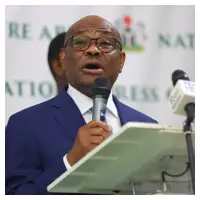Two years after President Bola Tinubu promised Nigerians affordable and accessible electricity as part of his 'Renewed Hope' agenda, many citizens continue to struggle with persistent power outages and insufficient supply across the country.
Despite the signing of the Electricity Act 2023 last June, which aimed to decentralize the power sector and allow states and private entities to generate and distribute electricity, Nigeria's power generation remains significantly below national demand.
According to the national electricity operational report for May 27, 2025, Nigeria's peak generation stood at just 5,351.58 megawatts (MW), far below the national peak demand forecast of 19,798 MW. This means less than one-third of the country's power needs are being met, despite having an installed capacity of 13,014.14 MW.
Citizens Share Their Power Supply Struggles
Aisha Ahmad, a remote worker in Hotoro, Kano, told DAILY POST that her area receives electricity for only 3-4 hours daily, typically between midnight and 1 a.m. "The hours of light makes it nearly impossible for me to work from home. My mobile devices and laptop often run out of battery," she said. Ahmad now spends about ₦1,000 daily on transportation to a solar-powered office space to remain productive.
Small business owners are equally affected. Auwal Sumaila, who operates a pure water factory in Mariri, relies heavily on diesel generators to maintain operations. "Most times, we see light around midnight when I've already shut down for the day. This makes me spend money buying diesel daily which only increases my production costs and reduces my profit margin," he explained.
The situation is even worse in some communities. Abdulrasheed, a resident of Danlami in Ikara Local Government Area of Kaduna State, revealed that his community has been without electricity since 2019. "The last time we had electricity here was over five years ago," he lamented.
Expert Criticizes Power Sector Progress
Engr. Jaafar Sulaiman, Vice Chairman of the Nigerian Society of Engineers (NSE), Kano branch, expressed dissatisfaction with the Tinubu administration's performance in the power sector, stating there is "basically nothing to show after nearly two years in office."
"We can see that all the major problems faced by the power sector remain," he said. "We recently witnessed a situation where almost the entire North West went without power for about 19 days."
The engineer also criticized the controversial Band A tariff hike implemented on April 3, 2024, which increased rates from ₦66 to ₦225 per kilowatt-hour for customers supposedly receiving at least 20 hours of electricity daily. "Before we talk price, we must have stable and sufficient supply," he insisted.
As of May 2025, Nigeria's national power grid has collapsed more than 12 times under President Tinubu's administration, including multiple incidents in 2023 and 2024.
Proposed Solutions
Engr. Jaafar emphasized that improving Nigeria's power sector requires strong political will and commitment to continuity across administrations. "Power projects are not quick wins. They require time and sustained investment. Unfortunately, each new government often abandons the work of the previous one," he noted.
He advocated for better maintenance of existing infrastructure and a more pragmatic approach to energy generation, suggesting Nigeria should fully utilize available resources like coal and gas while gradually developing renewable energy solutions.
"We need to use what we have to get what we want. We should not blindly follow the Western propaganda of renewables only. Countries in Europe still use coal for electricity. Why not Nigeria?" he concluded.













